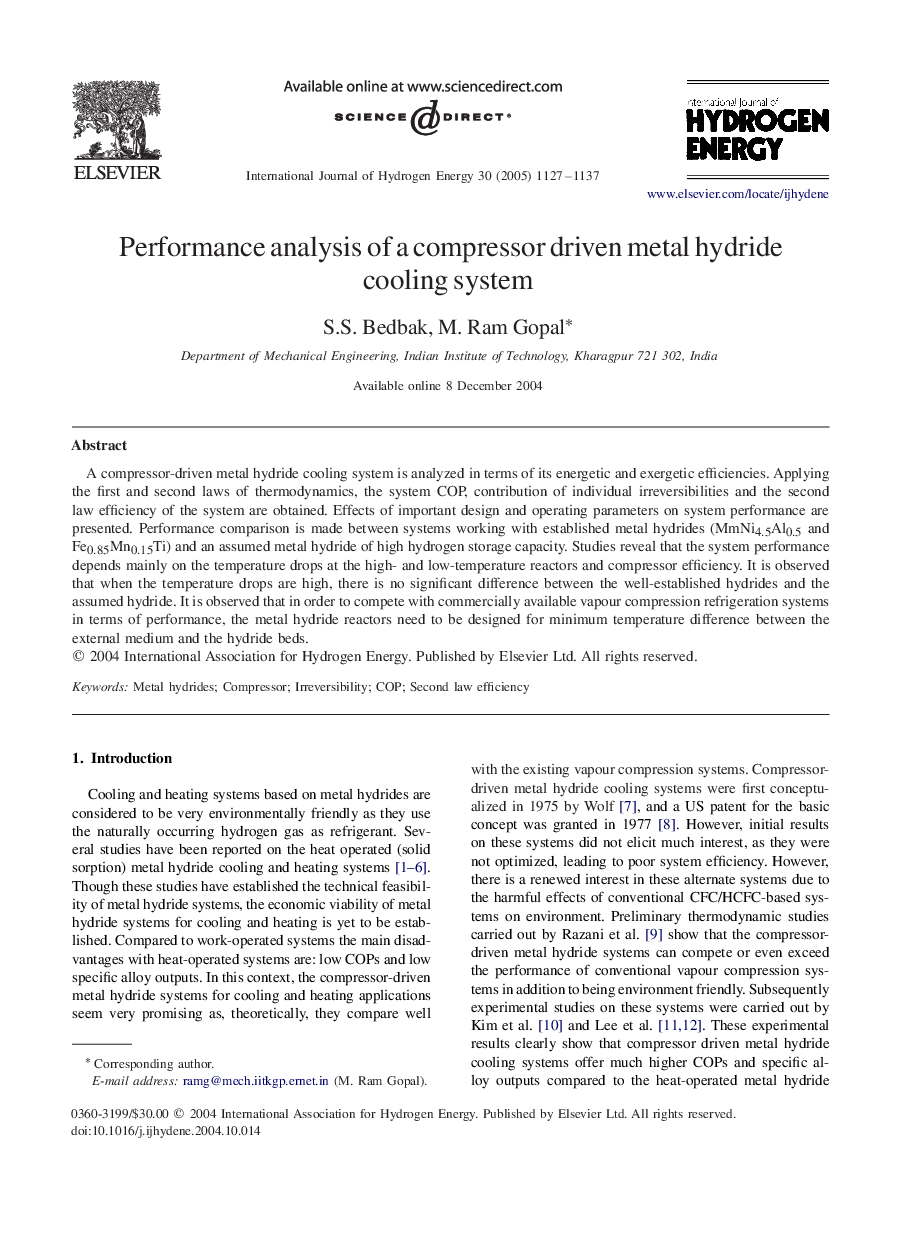| Article ID | Journal | Published Year | Pages | File Type |
|---|---|---|---|---|
| 9759258 | International Journal of Hydrogen Energy | 2005 | 11 Pages |
Abstract
A compressor-driven metal hydride cooling system is analyzed in terms of its energetic and exergetic efficiencies. Applying the first and second laws of thermodynamics, the system COP, contribution of individual irreversibilities and the second law efficiency of the system are obtained. Effects of important design and operating parameters on system performance are presented. Performance comparison is made between systems working with established metal hydrides (MmNi4.5Al0.5 and Fe0.85Mn0.15Ti) and an assumed metal hydride of high hydrogen storage capacity. Studies reveal that the system performance depends mainly on the temperature drops at the high- and low-temperature reactors and compressor efficiency. It is observed that when the temperature drops are high, there is no significant difference between the well-established hydrides and the assumed hydride. It is observed that in order to compete with commercially available vapour compression refrigeration systems in terms of performance, the metal hydride reactors need to be designed for minimum temperature difference between the external medium and the hydride beds.
Related Topics
Physical Sciences and Engineering
Chemistry
Electrochemistry
Authors
S.S. Bedbak, M. Ram Gopal,
